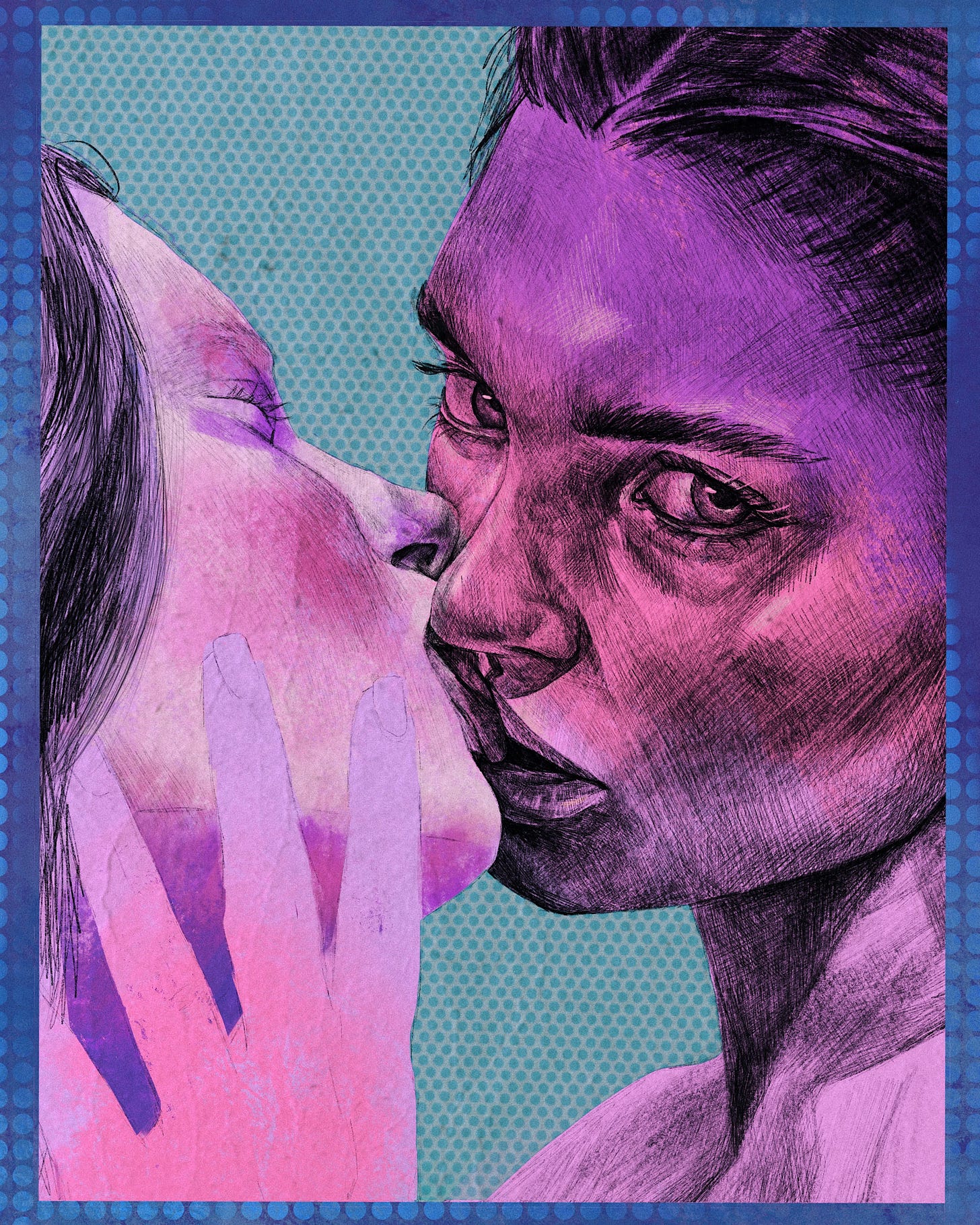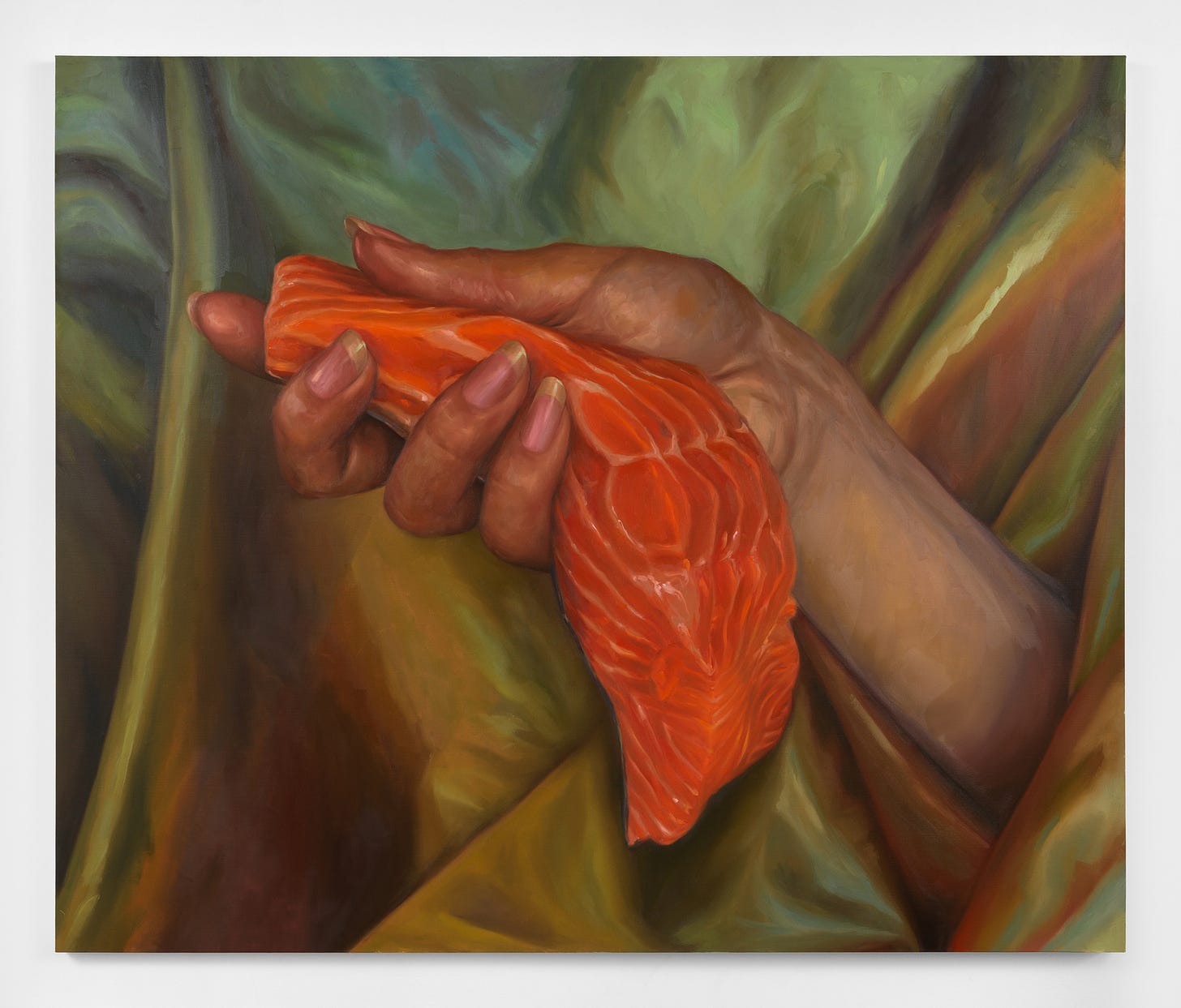Why not begin an essay on voice notes… with a voice note?
Earlier this year, I flew home to Toronto for a friend’s wedding. Like many people who don’t visit home that often, I was confronted with a choice: do I tell people I’m home and submit to a social circus or do I lay low, pull my baseball cap down, and incognito mode my way through the city like an off-duty actor? As I was attending a large wedding with friends that I’d known for over a decade, I figured my cover would be blown by the first night so, I sounded the alarm to my various Canadian group chats to plan hangs.
Two and a half hours after returning home, I was reunited with a variety of main and guest characters from my life including the best crispy shrimp in the world, friends from university and colleagues from old jobs, my first real estate agent and her husband, my go-to dairy-free chocolate ice cream, my friend’s ex-boyfriend going on a first date with another friend and the greatest consistency in my life: the Toronto International Film Festival. There was a time when this reminder of self would have felt suffocating but, instead, it felt validating. All these fragments of myself, right where I left them, magnetized to me through pre-planning and serendipity.
With familiarity comes comfort. With comfort comes people being a bit too comfortable with you. The people who have known you the longest sometimes feel like they can say just about anything to you. Sometimes their honesty is unkind and, other times, it's heart-warming, but it’s almost always entertaining. This is why, when a tipsy, old classmate came up to me and told me, unprompted, that he didn’t like my writing and I that should stop, my first reaction was to laugh. My second was to sip my tequila soda and let him tell me more. I am always fascinated by how much people reveal when you shut up and let them speak and I wanted the tea from someone who considered themselves to be “keeping it real.”
He suggested that, instead of writing, I start a podcast – famously ‘the brokest form of media’ according to Azealia Banks. According to him, my writing voice differed slightly from the Brendon he remembered. Because I go to a Cognitive Behavioural Therapist, I know that the key to life is only absorbing things that validate your inner world and ignoring the things that threaten your reality. And so, what I heard was: You’re so captivating in real life that no art form can ever ever ever ever capture you. Your presence is so expansive that there is no master of the English language who can confine you to a page. The man had a point.
And still, after midnight as I bustled towards where I was staying, wielding a McChicken1, I wrestled with his words. I didn’t agree with him but I knew that my gift of the gab could be heard in some of my writing but not all. Depending on the project (fiction, non-fiction, a LOOSEY essay, or a commissioned piece), I intentionally dialed my voice up and down like an instrument.
Still, I couldn’t discredit him when he said that he personally found me more interesting to talk to than to read. Don’t we all prefer hearing our friends talk?
Thinking this over, I lifted my phone to my lips to send a voice note to a mutual friend, re-hashing my opps old friend’s comment, the wail of the icy wind licking the screen, the crinkle of a burger wrapper collapsing in my fists, my quick pace breathy bickers and the blinks of the apartment elevator all captured in the audio file. It was only after I hit send that I understood what he was saying. I had proven his point. What was true both in his reality and my CBTussied version of it was that for some things words are simply not enough.
As a writer – a writer of texts, emails, ransom notes, and the occasional essay – I’d like to believe that what I experience can be expressed entirely by the written word. And for a few exceptional writers, this is true. For many, including myself, it is not. Recently, in a fiction workshop, I was told that for a skilled writer, there is no such thing as a synonym. This blew my mind: the idea that each word has a minute, specific meaning with no direct substitute. This is why voice notes are so compelling. When words fail and you cannot locate the correct one, your tone, background noise, and vocal inflection fill in the gaps, leading to a more emotive, entertaining response. A text is a script. A voice note… well, that’s theatre.
A few thoughts on what makes a good voice note…
Every good voice note has a hook. For me, close friends will know that my hook is one introductory note in which I say two words: “Okay, so.” Record. Send. This is a warning for the receiver of the voice note. Take a bio break, go to a private area, grab some popcorn, and put in your headphones. You’re about to go on a ride.
Pauses and cliffhangers. I have been known to end a voice note on a cliffhanger and leave for a couple of hours before I do another episode voice note. I promise this isn’t entirely for suspense. It gives the receiver(s) a chance to catch up and respond. I enjoy when a voice note can act as a substitute for an actual phone call rather than be a voicemail dump that you listen to at the end of the day. As a result, I prefer to voice note when I know a captive audience is waiting. I genuinely love it when I drop the voice note and can see the bubbles of who is responding and to what part.
Get creative. Recently, I have been experimenting with a multitude of imagery to supplement voice notes like here when I was explaining the connection between a dream I had to someone’s business I had no reason to be in. Sometimes a jury just needs an exhibit to lean the verdict in your favour.
The voice. I mean, duh. The message’s timbre is guided by our tone, odd turn-of-phrases, stutters and laughter, bloopers and cut-offs. A capsule of your humanity flashes and then is no longer there, evaporating from your phone as soon as you’re finished listening. The ephemeral nature of a voice note feels as intimate as a cupped whisper from your friend. It’s precisely yours until it’s no one’s.
The above, imbued with my suspicious accents, and half-songs, the rattle of the subway, and the wails of the New York City sirens, is why my friend said what he said. It is why close friends believe they can say just about anything to you. It’s because, in a way, you have been saying just about everything to them. And if you’ve sent them a voice note, there’s a good chance that they’ve heard more than your words. They’ve heard all of you.
Canadian McChickens are different from the McChickens I am forced to accept in New York.








Finally, justice for the voice note!!!
haunted by “CBTussied”